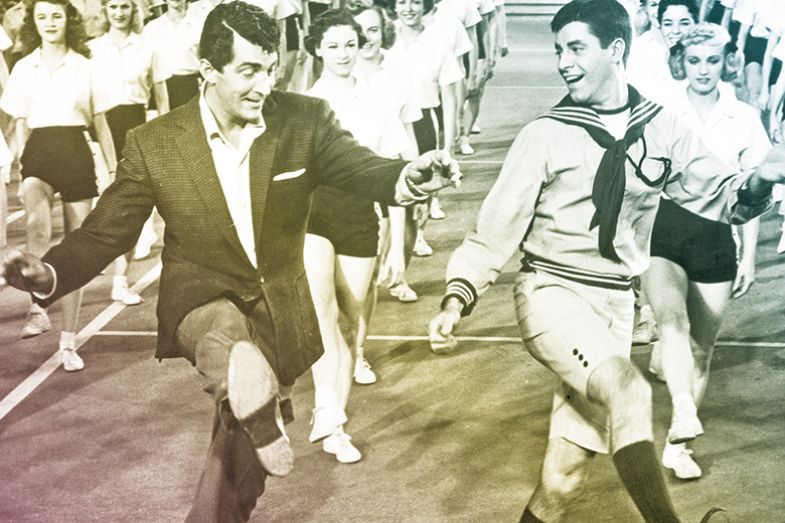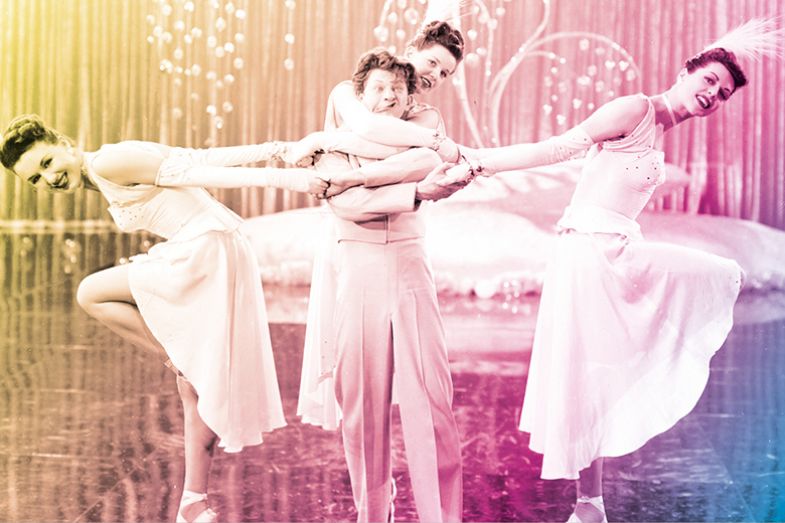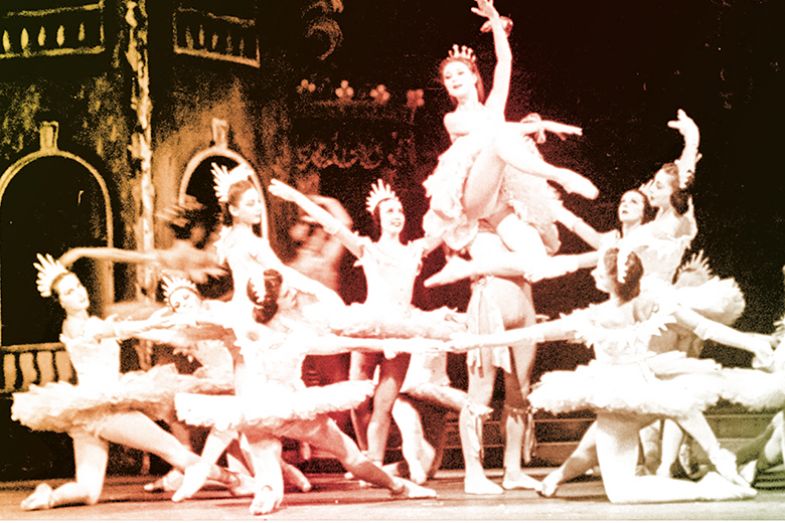Entering senior management marks perhaps the profoundest transition in an academic career. It is the point at which the job description changes from tasks, such as research and teaching, in which scholars have had years of training and practice, to those in which they may have precious little prior experience and expertise. And failure is suddenly very public.
Moreover, even if it is not always a point of no return, taking on a central university leadership role often involves a big shift in both self-perception and reception by colleagues – some of whom may grumble about losing a peer to the “dark side”.
So what is the purpose of all those meetings? How is it possible to maintain bodily health amid such a relentless schedule? And is it realistic, in such circumstances, to maintain any sort of research profile? These are just some of the questions addressed by our cast of current and former university leaders and senior managers. The faint-hearted should perhaps look away now.
‘A photograph of me taking a commuter train to campus one day appeared on the students’ union Facebook page with the caption “VC’s helicopter off for servicing” ’
The public scrutiny of even trivial private acts takes some getting used to when you become a vice-chancellor. When I led the University of Adelaide, I knew that if I ate a slice of pizza at the campus plaza, or drove out of the car park a tad too swiftly, chances were that I would read about it on the student chat sites. A photograph of me taking a commuter train to campus one day appeared on the students’ union Facebook page with the caption “VC’s helicopter off for servicing”.
But the main difference between the life of a vice-chancellor and anyone else on campus is the amount of time spent meeting people. As head of a department, it is possible to keep your finger on the pulse simply by engaging in casual conversations with staff and students in the corridor; but, as a vice-chancellor leading a community of thousands, staying in touch means making detailed plans for interaction. I maintained a regular schedule of encounters with groups from within and without the university, and got used to using my dinners, lunches, afternoon teas and even breakfasts as opportunities to consult with one group or another. Inevitably, meeting people consumes about one-third of a vice-chancellor’s time.
In the midst of this, how some university leaders manage to sustain their academic work I could never fathom. A book of mine that was ready for the publisher save for some final revisions languished throughout my five-year term. On the other hand, I was determined to maintain some contact with students, and periodically did a little teaching in my field – which immediately reminded me of why I had entered academic life in the first place.
New skills are required, too. It remains the case that most vice-chancellors are recruited from the academic ranks, but, increasingly, the role comes with expectations in terms of knowledge and experience that no academic can be expected to have acquired. These include media and crisis management, fundraising, industrial relations, financial management and the principles of governance. Fortunately, I had had several years as a deputy vice-chancellor to master some of these essentials.
It is often said that universities are now “big business”, and should therefore be seeking business experience in their leaders. I was never persuaded that this was so – and, indeed, I often witnessed business executives failing in their attempts to transition into university leadership. Certainly, public universities must be managed in a businesslike manner, but they are not businesses: their objective is not to seek profit for shareholders, and their enterprise is not focused on a narrow range of products and services. A successful university leader must grasp the unique quality of an institution where power emanates not from management but from the knowledge and authority of the professoriate, and where the purposes for which it exists are timeless rather than short-term.
Looking back, I would say the greatest pleasure of being a vice-chancellor was having the capacity to influence the direction of a great institution, to see staff inspired by plans for change, and to watch as a good idea radiated out across an academic community, often to profound effect. But it is a tough job, and the greatest challenge for me was to stay healthy. I managed the unending stress by daily fitness training; but against the effects of excess food and drink – unavoidable in a life of continual socialising – I fought a losing battle. I gained 11kg in my first year as a v-c, and wasn’t able to lose it until after I finished.
Warren Bebbington was vice-chancellor of the University of Adelaide for five years until May 2017. He is now a professorial fellow at the University of Melbourne.

‘My administrative work always seemed like fieldwork of a kind. I continued to observe even while I was participating’
My first steps in administrative roles were taken as extensions of my primary intellectual interests and activities: creating an interdepartmental PhD programme, directing an area centre and developing the concept for an international institute. And when I accepted an invitation to become the chair of anthropology at Columbia University and rebuild what had been the first and most influential such department in the US, I did so to advance a commitment to the internationalisation of the discipline.
Departmental chairs have to put one foot in the door of administrative life, but I was no exception in doing so with a fair degree of ambivalence. It was a huge leap when, just as I was stepping down from six years as chair, I was asked to serve as vice-president and dean of Columbia’s Faculty for the Arts and Sciences. I had never thought I would go into academic administration full-time, and my first concern when taking on this new role was how to finish the book I was writing. I was able to take enough time off the next summer to do so, but, by then, I had realised it would be difficult to continue an active research career in archival study and ethnographic fieldwork.
Still, I continued to teach – and, at least for a time, when things got rough I comforted myself with the thought I was still an expatriate, rather than a dyed-in-the-wool administrator. After all, the move into administration was in some senses merely a continuation of the intellectual journey I had begun years before, when I had taken full advantage of the miscellany of the liberal arts and did interdisciplinary work in African and Asian studies as my undergraduate major.
I began not only to read far more widely across disciplines, but to study the university itself. My administrative work always seemed like fieldwork of a kind. I continued to observe even while I was participating, to invoke the methodological contradiction at the core of anthropology. I used my experiences with budgets, local institutional histories, alumni and students, fellow senior administrators and boards of trustees to broaden and deepen my admittedly narrow view not only of what the university had been across time but also what it meant to the multiple communities that lay claim to it. For a member of the faculty who had assumed the universal value of what I did – both in my teaching and in my research – this process was both humbling and disconcerting.
There are, in fact, multiple cultures that make up the university: not just the two that C. P. Snow made famous. And while administrators inhabit a culture that is distinct and, in some ways, cut off from regular interactions with (and as) faculty, we need to find new ways to bridge the gap.
This is not to say that faculty need to experience all the twists and turns of administrative life: the endless deliberation about matters ranging from free speech to student safety; the delicate negotiations over major gifts by alumni or other donors; the vertiginous exposure to financial contingency when a multimillion-dollar budget needs to be balanced by making what seem impossible tradeoffs. However, the common dismissal of life on the dark side – or the simple envy of administrative perks – obscures the lessons that might productively be shared.
Even as the university continues to be as close to Utopia as any idea I know, it will never look the same again. Nor should it. But its future will be better if we all learn from the stories that faculty who become administrators can tell.
Nicholas B. Dirks was the 10th chancellor of the University of California, Berkeley. He is currently writing a book on the future of the university.
‘One thing I’ve learned is that if you can’t tolerate failure, you probably won’t achieve success’
Whether they come from an academic background or not, the senior managers who serve their university best are those who recognise that the ultimate purpose of everything they do is to support the academic mission of their community. Clarity about this overarching goal helps enormously in cutting through the noise that inevitably surrounds discussion of policies, accounting, staffing, planning, regulation and so on.
In maintaining such clarity, I believe I have an advantage in that I began as a researcher and continue to be research-active (I fully expect to be submitted to the 2021 research excellence framework). Now that I have fewer “bosses”, I am able to deliver on the key advice I received early in my career: block your time to allow for concentrated work. Accordingly, I set a number of recurring meetings, and then try to respond positively to as many other requests as possible between 8am and 4pm and 6pm to 8pm, Monday to Thursday. Friday is for research, reflection and complex emails (as is Sunday).
But as the complexity of my diary increased, my teaching morphed from lecturing to project supervision, and my research engagement evolved from supervising PhDs to managing postdocs, and then to collaborating with peers and colleagues. Finally – when I realised that I would not be returning to the academic ranks full-time – I moved my whole research field from modelling and data creation towards analysis of existing data.
I tend to think of my role as “leadership” rather than “management” – although I recognise that both terms have their negative connotations. What I mean by leadership is striving to use my influence to nurture, facilitate and inspire colleagues.
The greatest pressure on me – and, indeed, my greatest ambition – is to ensure that despite the internal and external constraints I contribute to making my university greater than the sum of its parts. The true perk of my position is in seeing that happening. By the same token, however, I have learned the importance of keeping an open mind and enabling other colleagues to pursue their own good ideas in service of a shared vision. This is as important as delivery of your own ideas.
I’ve grown into leadership over 26 years, as a head of department, vice-dean, dean and, currently, vice-provost for research. While I do not think of myself as “poacher-turned-gamekeeper”, with each progression in my responsibilities I have gained a more nuanced understanding of the wider complexities within and beyond my university. I seem to be, however, a constant source of disappointment to former departmental and faculty colleagues, who assume that I can fix all the woes of the institution (not to mention of the government) single-handedly.
On a day-to-day basis, I am blessed by an excellent set of colleagues in my current team, who provide a sounding board and multiple provocations. I have also benefited from bosses with inspiring strategies, including my first head of department (“have catholic interests”) and my first provost (“see beyond the next step”). And I have enjoyed and hugely benefited from being able to talk through issues with a personal coach from time to time.
But, mostly, I have learned on the job. Primarily, this has been from mistakes, both my own and other people’s. Some degree of learning-by-doing is both inevitable and desirable, and one thing I’ve learned is that if you can’t tolerate failure, you probably won’t achieve success.
Other pearls of wisdom I have accumulated include the fact that interviewing is a very hit-and-miss way of making appointments, and that if you ask for things well, you may get more than you asked for (in both senses). I also keep certain clichés close to hand. Leopards don’t change their spots. You can’t fit a square peg into a round hole. Through many years of rigorous testing, I have established their truth beyond reasonable doubt.
David Price is vice-provost (research) at UCL.

‘I agreed to become PVCR because it was an unusual opportunity for a woman and a non-scientist to have a voice in what was otherwise a solely male and science-based research executive’
I come from research traditions (sociology, history, critical policy studies) that are often critical of what leaders and managers do. And I continue to be a strong advocate for research developing new perspectives that are not oriented towards “what to do on Monday”. So it was something of a shock to my own norms to become first an associate dean for research at two different institutions, and then, for six years, a pro vice-chancellor for research at a major research university.
I agreed to become PVCR because it was an unusual opportunity for a woman and a non-scientist to have a voice in what was otherwise a solely male and science-based research executive. My immediate culture shock was the full and tightly managed calendar. Although I was expected to continue my research, management activities were fast-paced, driven by deadlines and frequently changing policy imperatives. I found it difficult to turn to the slower rhythm needed to properly read, think, digest and write my own research, even when I had time reserved for this. My daily interactions were now dominated by management colleagues and events, rather than by exchanges with disciplinary peers in seminars and at conferences.
However, I did remain an active researcher and supervisor, spending one day a week in my faculty. And that gave me a better understanding of researchers’ frustrations than I observed elsewhere in management. People at senior executive levels of universities work very hard, but they are also cushioned technically by support staff, and spend most of their time with others also engaged in management.
I aimed, therefore, to inculcate a better understanding among university management of researchers’ experiences – such as the time burden imposed on them by online systems devised for management data purposes – and of the inadequacy of short-term, sticks-and-carrots approaches. By the same token, I aimed to have research leaders at faculty level understand and develop effective responses to the genuine constraints of finance, government regulation and competitive context faced by the university.
I think I was more successful at the latter than the former, in part because I developed collegiality and good networks with the faculty leaders. Indeed, the best parts of the job were meeting and working productively with a wider range of people across the university, and discovering the shared understandings, goodwill and generosity of researchers from different disciplines. Top-down performance templates are a bête noire of most academics, but in the cases when these were accepted as government-driven or unavoidable, the faculty leaders I worked with would work together to find pragmatic responses.
My time as a PVCR gave me a new respect for university management and leadership roles, especially regarding the difficulty of balancing myriad, frequently conflicting regulations and pressures from outside. The worst parts of the job were the time-consuming burdens of petty detail and conflicting reporting categories required by government policies and research assessments.
I also acquired new insights about the specific pressures faced by different research fields – even medical research, for all its comparatively lavish funding. However, it was a daily struggle to confront policies that took laboratory research as the norm and “why can’t humanities be more like science?” as their implicit mantra.
Gender bias was also a factor, even if it was largely indirect and unintentional. Academia works by networks, membership of which yields invitations to speak and nominations to positions and honours. My own networks, both in terms of discipline and gender, were strikingly different from those of my research executive colleagues. The opportunity to suggest a different range of people was a positive of my appointment, but this issue is a continuing source of discrimination that can remain invisible. It must be addressed if universities want more women to enter senior management.
Lyn Yates is Redmond Barry distinguished professor of education and was previously pro vice-chancellor (research) at the University of Melbourne.
‘Reliability is valued highly by colleagues, and it is a critical quality of successful academic leadership’
With an exaggerated tone of exasperation, an academic colleague once described me as “so reliable”. At the time, I interpreted this as not so much a compliment as a complaint about my supposed plodding predictability.
But fast-forward to an interview for a departmental leadership role and I depicted my reliability – the quality of consistent behaviour – as a strength of my approach. Fast-forward again to an application for a university-wide management role and reliability was bullishly foregrounded in my supporting statement.
What I gradually realised is that, rather than being scorned, reliability is valued highly by colleagues, whether lecturers or leaders, and that it is a critical quality of successful academic leadership.
A senior role gives you the opportunity – and the responsibility – to more fully appreciate the breadth and depth of commitment to education across your institution, and beyond it. You also have the chance to influence change directly – which might have felt impossible as a lecturer. But it comes with plenty of new challenges. Your relationships with other people become more indirect, and the extent to which you can protect time for teaching and research lessens. The peer group with whom you can be candid reduces – or even disappears – as the routine decisions you make affect larger numbers of people.
Like our teaching and research, our leadership must be in the interests of others. But purity of motivation does not mean there aren’t times when, individually and collectively, you make the wrong call. A colleague of mine invites their graduating students to write letters of advice to incoming students, based on the benefits of their own hindsight. If I were to write a similar letter to someone starting out in university management, I would advise that all their decisions be informed by input from as wide an audience as the situation allows.
Change should be undertaken sensitively, with a full recognition of the tensions between institutional imperatives and people’s hopes and expectations around university life. The best approach is to strive to build a shared understanding of situations: this is something over and above merely engineering – or enforcing – agreement about them.
A related piece of advice is to empower others wherever you can, rather than hoarding power.
The status quo is there to be challenged, and managers should respond flexibly and decisively to changing situations. But they should clarify issues as they go. And they should always act reasonably, transparently and with integrity. Above all, a university manager must be reliable.
Jane Rand is pro vice-chancellor (academic) at York St John University.

‘One question insistently echoed in my brain: “What am I doing here?” ’
The key moment in the transition from university professor to rector is when you psychologically take in the fact that you are leaving behind your familiar and intimate disciplinary world and entering an awe-inspiring universe about which you know absolutely nothing.
It is a universe that stretches from astronomy to anthropology, from biochemistry to criminology, from medicine to linguistics. Anyone who hasn’t fully experienced that rather humbling epiphany is likely to have a tough time as a rector. After all, as we recently learned from a former Formula One boss who took on the role of vice-chancellor, sport-style “heroic leadership”, whereby charisma alone is considered to be enough for success, is not a good fit for higher education ( “Heroic leadership ‘will fail’ in higher education” , News, 29 June 2018).
In my case, I had already had an important stopover on my journey into senior management as dean of a law school. Still, I remember vividly the day, five years ago, when I was inaugurated as rector. It was the day of the annual celebration of my university’s foundation, in 1575, in Leiden’s cathedral. I was standing before a large audience of professors in their sober black Dutch Reformation-style gowns as the university chain of office was placed on my shoulders. And it was as if all those scholarly individuals constituted not so much a shining intellectual universe as a black hole, from whose gravity there was no escape. I knew that my every future action would be open to very public scrutiny – in itself a good thing, of course, but nonetheless quite daunting. And one question insistently echoed in my brain: What am I doing here?
So how do you convince all those wonderful academic suns, moons and stars to accept you as their leader? The first thing you realise is that you don’t have to do it all alone. In fact, you find yourself surrounded by a wealth of collegiality and support. A successful rectorship, for me, is all about building and embracing connections: my top five tips would all focus on that. The most important one is to be as visible as possible, to students and academics alike. Go to academic sessions and parties as much as possible, and when you’ve opened a conference, stay to listen to one or two of the speakers.
Second, try to understand your academics: not so much the ins and outs of their specialist field (how could you?), but, rather, the people behind the disciplines. Keep asking lots of questions.
Third, give your academics, young and old, as much attention as possible: academics thrive on attention, for their discoveries, student evaluations and prizes. Fourth, in whatever you do, try to be guided by the shared values of your institution. And, fifth, keep some of your own research going, if only in the holidays. Research, too, connects (as does teaching): it really makes you one of them.
This last tip can also help ease the return journey that most rectors in mainland Europe take at the end of their terms, back into the professoriate. This strikes me as an equally challenging transition, and I am now curious about how I will be accepted back by my colleagues in my previous disciplinary world.
But I am hopeful. Last summer, when I was working on a short publication, I became so engrossed in a ruling of the European Court of Justice that I completely lost track of time and suddenly realised it was 3.30 in the morning. That is something I have never experienced when poring over the paperwork for my Executive Board, and I see it as a heartening sign. Somewhere deep inside me, the young legal scholar that I used to be so long ago is still alive and well.
Carel Stolker has been rector of Leiden University since 2013. In 2014, he published a book, Rethinking the Law School (Cambridge University Press), about his prior experiences as dean of the Leiden Law School.
 Source: Getty
Source: Getty

‘Being a PVC is undeniably hard work. I have always gone full tilt at every role I have had, but the sheer intensity of senior management did come as a surprise’
As a proud Liberal Democrat who was once described by a former boss as a “lefty liberal”, it was painful to find myself on the wrong side of a “bosses versus workers” conflict earlier this year. I had only been a pro vice-chancellor for education for a few short months when the strike over proposed cuts to academics’ pension benefits began, and I hadn’t quite finished thinking through the transition of identity from academic practitioner to leader – despite a previous stint as an associate PVC for online learning.
As many commentators have noted, the industrial action was about more than pensions, and I understand the angst there is in the UK sector about the marketised environment the government has introduced. I feel the weight of responsibility senior managers have to navigate this new regulatory environment and evolving set of expectations, while upholding higher education’s core values. But it is a challenge that I am looking forward to meeting.
There has been a welcome proliferation of associate PVC positions across the UK sector. For me, carrying out the role at the University of Liverpool was a bit like being an apprentice PVC. Working alongside – and learning from – the deputy vice-chancellor and PVC for education, I had lots of opportunities to lead things at a senior level, while also having time to work out some of the practical ways to keep up with scholarship and teaching in a full-time management role. My main tactic in that regard has been to reflect and write on the strategic issues that I am leading on. So, at Liverpool, it was models of online learning. At Keele, my current institution, it is social learning. I have continued to supervise projects at undergraduate and master’s level and have found it to be a brilliant way to stay in touch with students while continuing to collect data for research projects.
Apart from the industrial action, my first six months as PVC have been relentlessly positive. I put this down to two factors. The first is that the executive team at Keele is supportive and collegiate; it is very important to me to work with people whose values I share, so I thought long and hard about the type of institution I wanted to move to, having been very happy at Liverpool.
The second factor is having the agency to set out a vision and then to go about achieving it. One of my first jobs, for instance, was to set up the Keele Institute for Innovation and Teaching Excellence. We have built an exceptional team and are developing a network of distributed leadership for education across the university. Sharing, debating and communicating how we want to reimagine the broad-based, interdisciplinary vision of Keele’s founder, Lord Lindsay, for the 2020s has been especially exciting and rewarding.
But being a PVC is undeniably hard work. I have always gone full tilt at every role I have had, but the sheer intensity of senior management did come as a surprise. Losing concentration isn’t an option as you constantly juggle all the demands on your time – most notably, chairing constant meetings – which often run into the evening. This leaves precious few opportunities to reply to emails or even eat, and has made me review how I manage both my time and my energy levels (rethinking what I eat and drink, and how much sleep and exercise I get).
Management colleagues tell me that it gets easier after you’ve done everything once. I hope so. But, either way, I have no regrets about taking on the role. I am writing this at the end of a week of graduation ceremonies. This is a special time of the year in any university, but it has been especially meaningful for me this year. Giving out teaching excellence awards to some outstanding colleagues, in particular, cemented my feelings of belonging to my university community, and enhanced my pride in having a role in leading it.
Helen O’Sullivan is pro vice-chancellor for education at Keele University.
POSTSCRIPT:
Print headline: Taking the lead
Register to continue
Why register?
- Registration is free and only takes a moment
- Once registered, you can read 3 articles a month
- Sign up for our newsletter
Subscribe
Or subscribe for unlimited access to:
- Unlimited access to news, views, insights & reviews
- Digital editions
- Digital access to THE’s university and college rankings analysis
Already registered or a current subscriber? Login









